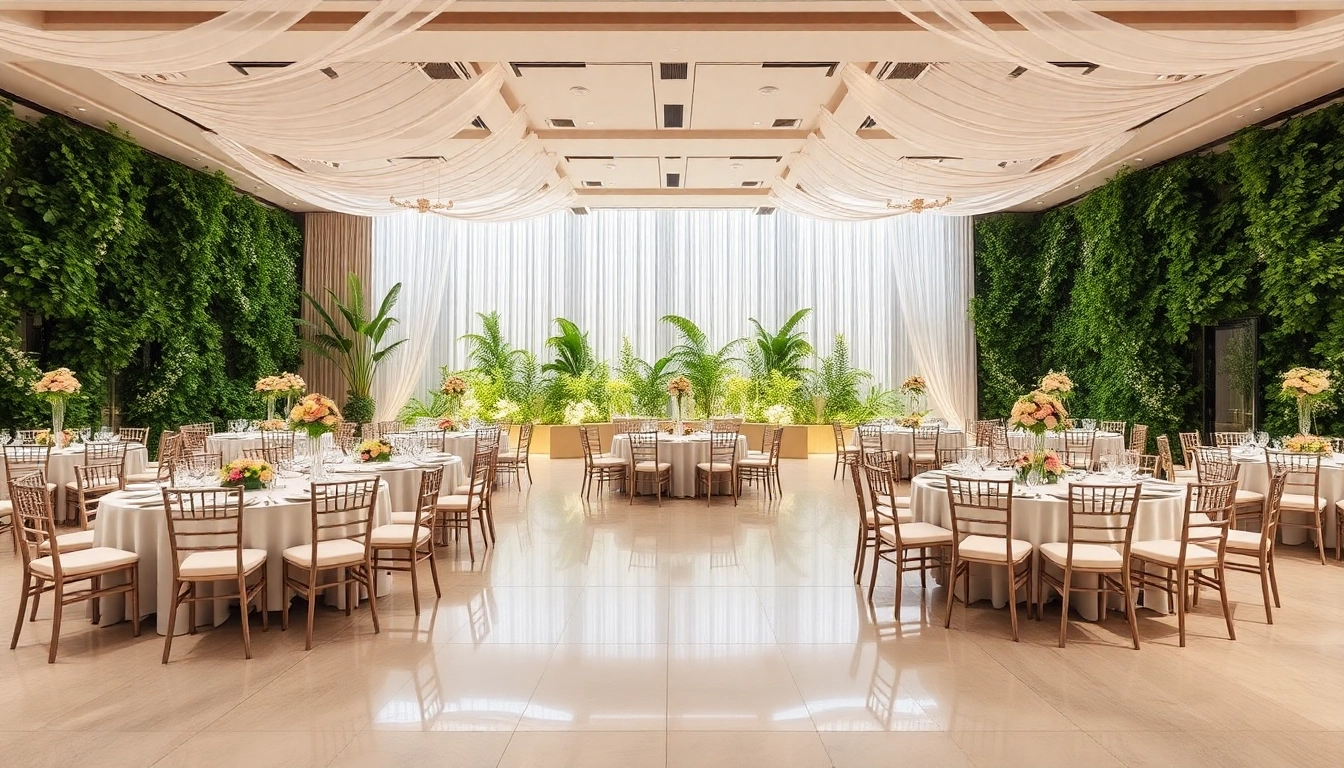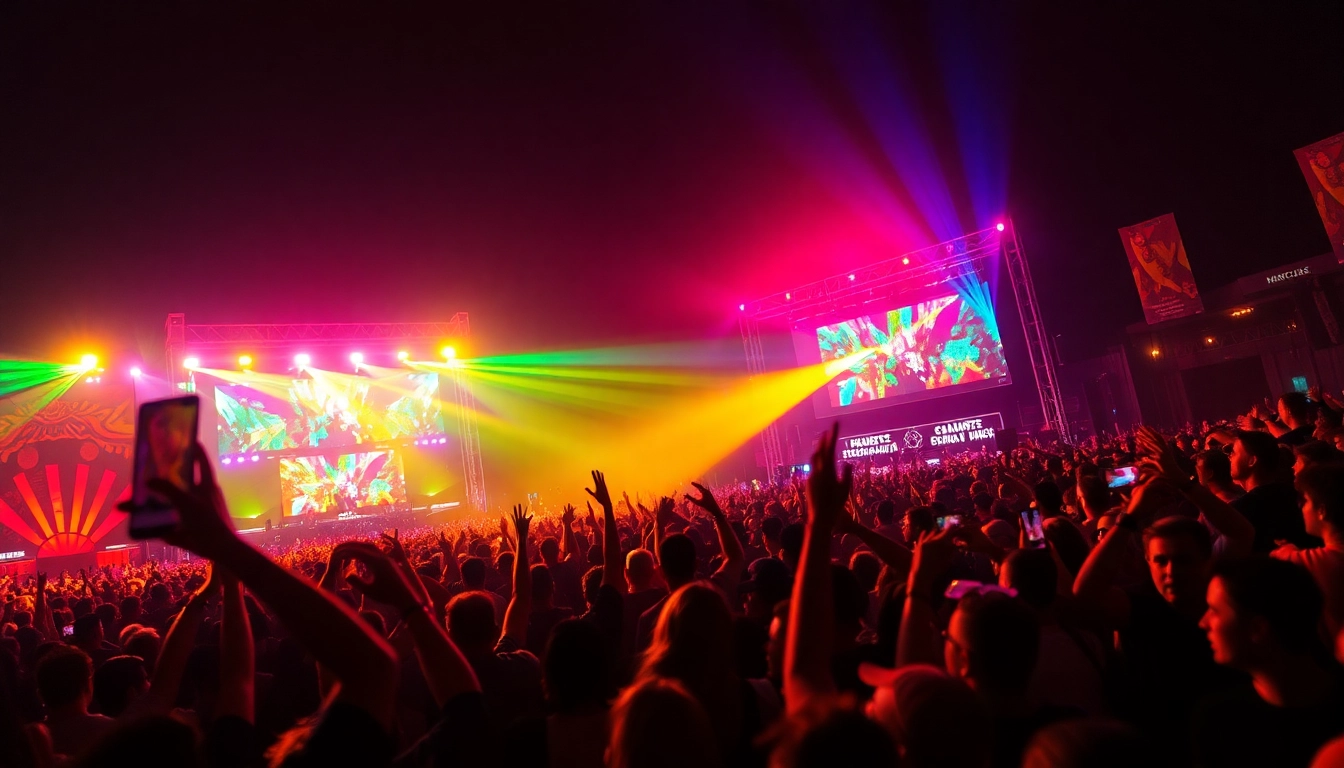Creating the Perfect Event Space: Key Insights and Considerations
Understanding Event Space Fundamentals
When planning any gathering, whether it’s a corporate meeting, wedding, or social event, one of the most crucial decisions to make involves selecting the right event space. This decision can make or break the experience for both hosts and guests. Understanding the components that define an event space and its various types will give you the insight needed to make an informed choice.
What Defines an Event Space
An event space can be defined as any location where organized activities take place. This encompasses a wide range, including banquet halls, conference centers, outdoor venues, and even unconventional settings like galleries or rooftops. What is essential is that the space is capable of accommodating the specific needs of the event, such as size, functionality, and atmosphere.
Types of Event Spaces Available
The variety of event spaces available can accommodate different types of gatherings. Here are some common types:
- Conference Centers: Designed for larger gatherings, these often include multiple meeting rooms, audio-visual equipment, and catering services.
- Banquet Halls: Ideal for weddings or formal dinners, banquet halls are typically spacious and feature kitchens or catering services.
- Outdoor Venues: Parks, gardens, and rooftop venues offer a unique atmosphere and are perfect for casual or summer events.
- Cultural Spaces: Museums and galleries provide a distinctive backdrop that can enhance the theme of an event.
- Unique Spaces: Warehouses, lofts, and industrial spaces have become increasingly popular, especially for corporate events and weddings, providing a modern and trendy aesthetic.
Key Elements of Event Space Design
An effective event space is designed with functionality and aesthetics in mind. The key elements include:
- Layout: The arrangement of furniture and fixtures should facilitate smooth movement and interaction among guests.
- Accessibility: Ensuring that the space is accessible to all guests, including those with disabilities, is vital.
- Technology Integration: Modern events often require audio-visual technology, Wi-Fi, and charging stations.
- Lighting: Proper lighting can set the mood, highlighting key areas and enhancing decor.
- Acoustics: Good sound quality is important, especially for speeches and presentations.
Choosing the Right Event Space for Your Needs
Selecting the ideal event space requires careful consideration of multiple factors to ensure it aligns with your event’s goals and needs.
Assessing Capacity and Layout Requirements
The first step in choosing an event space is to assess how many guests you expect to attend. Knowing the capacity of various venues available can help you narrow down your options. Consider the layout as well; for instance, if your event includes presentations or performances, a theater-style setup may be more appropriate than banquet-style seating.
Location Considerations for Event Space
The location of your event space can significantly influence attendance. Factors include ease of access, proximity to public transport, and nearby accommodation options for out-of-town guests. Urban venues might appeal to corporate clients, while country venues can be more inviting for weddings and personal celebrations.
Cost Factors When Renting an Event Space
Budget is another critical element in the decision-making process. When evaluating costs, consider not just the rental fee but also additional expenses such as:
- Insurance costs
- Catering and service fees
- Equipment rentals (AV, furniture, etc.)
- Decoration and setup costs
It’s essential to ask about package deals that may offer savings on multiple services.
Enhancing the Atmosphere of Your Event Space
Creating the right atmosphere can transform an event from mediocre to memorable. Here are effective strategies for enhancing the ambiance of your event space.
Effective Décor Strategies for Event Spaces
Décor plays a vital role in setting the theme and mood of an event. From centerpieces to drapes, the right elements can enchant guests. Consider using:
- Themed decorations that align with the event’s purpose, such as elegant florals for weddings or modern art for corporate events.
- Interactive decor elements that engage guests, like photo booths or art installations.
- Custom signage to guide guests and add a personal touch.
Lighting Techniques to Transform Your Event Space
Lighting can dramatically alter the perception of an event space. Techniques include:
- Accent Lighting: Use spotlighting to highlight significant features or focal points, such as a stage or a centerpiece.
- Ambient Lighting: Soft, diffused lighting can create a relaxed atmosphere that encourages conversation.
- Colored Lights: Transform a space with moving lights or colored gels that match your theme.
Incorporating Technology into Your Event Space
Technology not only makes events more efficient but can also enhance the guest experience. Consider integrating:
- High-quality sound systems for speeches and music.
- Interactive screens for presentations or social media integration.
- Live streaming options to engage remote guests.
Best Practices for Event Space Management
Efficient management of your selected event space is crucial for a seamless event experience. Here are some best practices to follow.
Staffing Requirements for Successful Events
Having the right staff can greatly influence the success of your event. Consider the following roles:
- Event Coordinator: Manages logistics and ensures everything runs smoothly.
- Security Personnel: Ensures the safety of guests and manages crowd control.
- Catering Staff: Responsible for the food and beverage experience.
Logistics Planning for Your Event Space
Good logistics planning involves detailed scheduling and coordination of all activities. This includes setting a timeline for setup, ensuring delivery schedules align, and monitoring the progression of the event to resolve any issues proactively.
Post-Event Evaluation of the Event Space
After the event, taking the time to evaluate what went well and what didn’t is invaluable. Feedback can be gathered through:
- Surveys sent to guests.
- Debriefs with staff and vendors.
- Personal reflections by the planner.
This evaluation can help refine future event strategies and improve overall experience.
Trends in Event Space Usage
As preferences and technologies evolve, so does the landscape of event spaces. Staying informed about trends will give you a competitive advantage. Here are some current trends to consider:
Emerging Designs in Event Spaces
The design of event spaces is continually evolving. Current trends focus on flexibility and adaptability, with modular designs allowing for different types of events within the same space. Incorporating elements of nature, such as greenery and natural light, is also on the rise.
Eco-Friendly Practices for Event Spaces
Sustainability is becoming a priority for event planners. Implementing eco-friendly practices includes:
- Using recyclable materials for decor and disposables.
- Collaborating with caterers who source ingredients locally.
- Utilizing digital invitations and signage to reduce paper waste.
Virtual and Hybrid Event Spaces: The New Norm
In today’s digital age, the demand for virtual and hybrid event spaces has surged. Offering a hybrid model allows guests to participate remotely while the event occurs in a physical space, thereby expanding your audience. Tools for virtual engagement, such as live streaming and interactive platforms, are essential for successfully executing hybrid events.








Post Comment